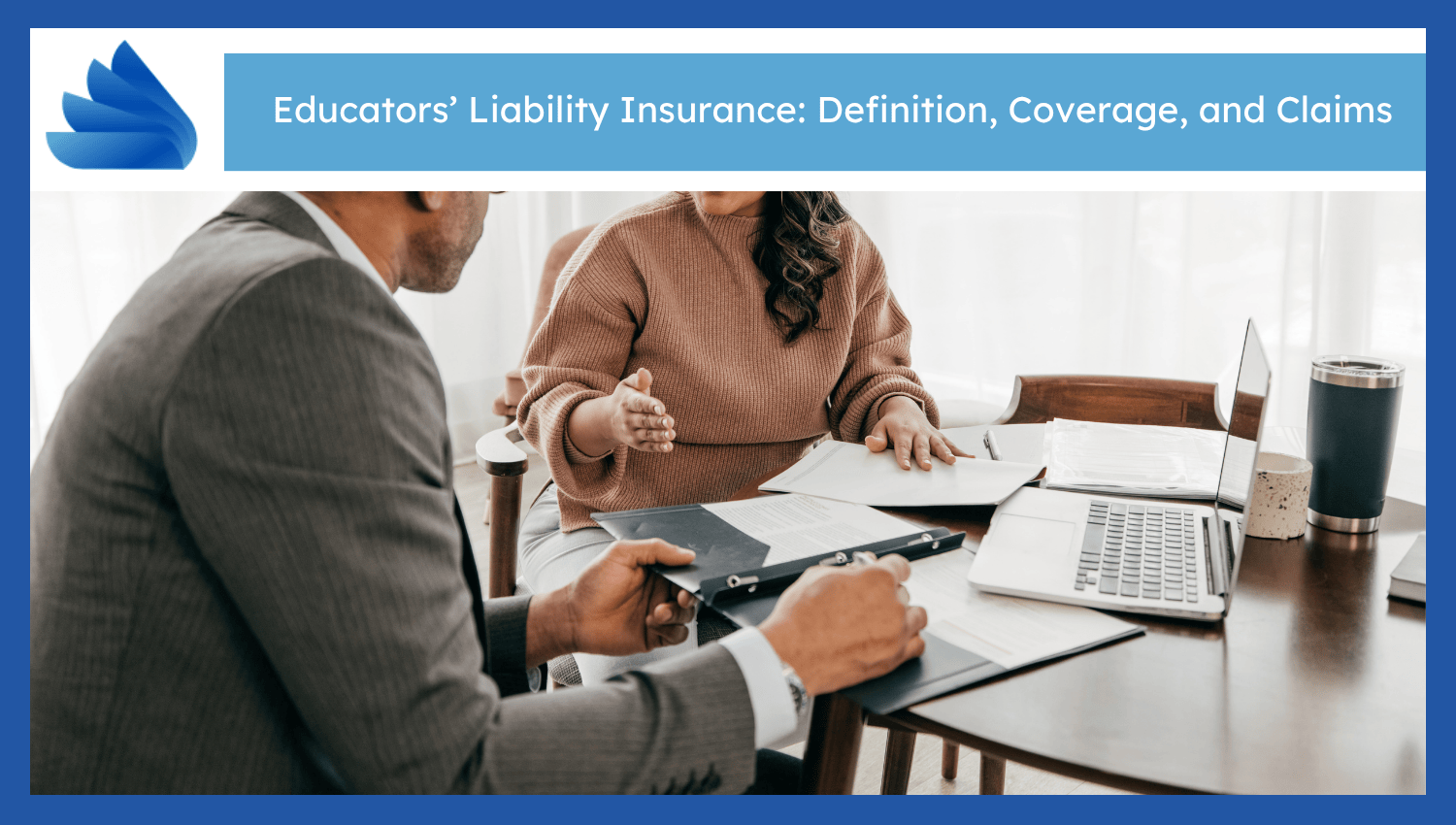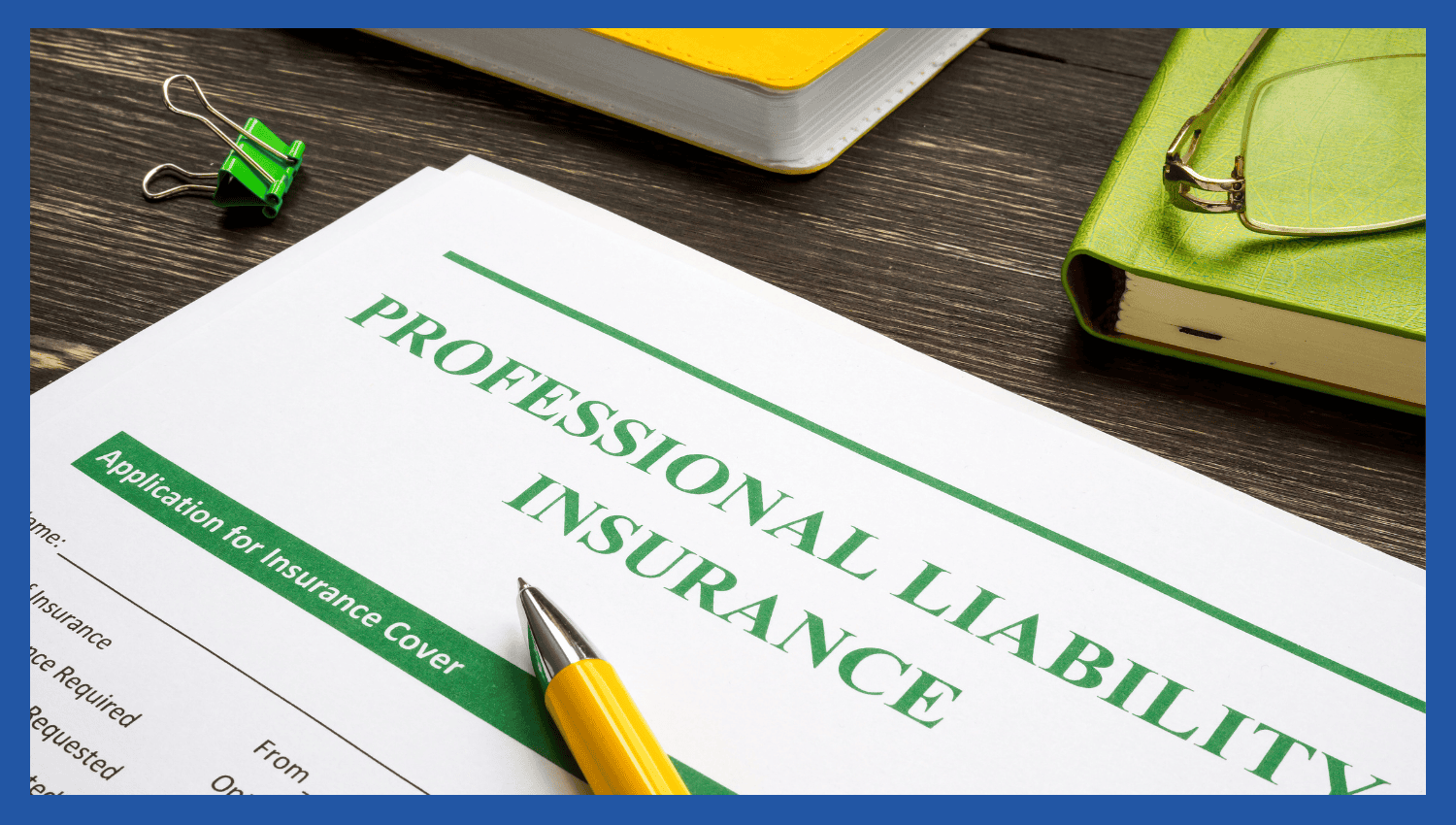
Educators’ Liability Insurance: Definition, Coverage, and Claims
Teachers' liability insurance covers teachers and other school officials against claims of errors, negligence or wrongdoing. Parents and courts tend to seek similar claims in cases where pupils are injured in the classroom or on school occasions.
Unions and school boards provide such insurance as default legal cover. The National Education Association offers $3 million to cover civil claims and defense and settlement expenses under its EEL program.
Some districts of the state make this coverage necessary according to state laws. Kentucky requires liability coverage to the extent of 1 million per employee in public schools. This kind of insurance is also known as Teacher E&O or School Legal Liability coverage.
What Does Educators' Liability Insurance Cover?
Here are six key protections included in Educators' Liability Insurance:- Student safety: Teachers are accused when they are unable to manage students adequately. More than 60 percent of litigation against schools in the area of injuries is related to a lack of supervision in classes or activities.
- Academic record errors: Schools and parents argue about wrong grades and missing marks. Student transcript mistakes or errors in the evaluation usually lead to legal proceedings.
- Presumable race/gender/disability discrimination: Courts address unjust treatment through grading unfairness, disciplinary penalties, or denial. Violation of civil rights regulations, such as Title IX occurs when educational institutions discriminate against a protected group.
- Educational accommodation failure: Schools face legal actions in cases where they fail to offer stipulated support under IDEA or ADA. When accommodations are lacking or insufficient, students with disabilities are affected.
- Alleged abuse of verbal or emotional abuse: Teachers are accused of verbal abuse and public embarrassment or emotional abuse. Students or parents usually make such claims as a result of reporting inappropriate behavior.
- Attorney fees, settlements, and compensation: Insurance covers the court fees, legal charges, settlements, and judgments. The EEL program of NEA covers these expenses up to 3 million per claim.
What Is Not Covered by Educators' Liability Insurance?
Here are six key protections that are not included in Educators' Liability Insurance:- Physical altercations: Educators' Liability Insurance does not cover the actions of educators that intentionally hurt others, like fighting or assault.
- Criminal acts: Criminal actions such as assault, abuse, or fraud are not under insurance. This policy cannot protect schools and personnel from illegal actions with subsequent legal consequences.
- Accidents at school sites: Educators' Liability Insurance doesn't protect against Injuries that happen on the property. General liability insurance or employees' compensation insurance often covers them.
- Employment-related lawsuits: EPLI covers claims involving hiring or firing of personnel, discrimination, or harassment of employees. Educators' liability insurance does not cover such employment disputes.
- Cyberbullying: This policy does not cover cyberbullying and other related problems such as information breaches or threats online. Such risks are normally addressed by separate cyber liability insurance.
- Sexual harassment allegations: Sexual misconduct allegations are endorsed separately or are prohibited. Educators' Liability Insurance does protect against these serious allegations automatically.
Who Should Consider Educators' Liability Insurance?
Here are five groups that need Educators' Liability Insurance:- Teachers in public and private schools: Private and public school teachers are exposed to legal dangers such as malpractices during supervision, grading, and discrimination claims. Liability insurance helps address legal expenses associated with such professional challenges.
- College and university professors: Professors have to deal with academic records and interactions with students that result in lawsuits. Liability covers guards against grading issues, discrimination, or false carelessness.
- School administrators, principals and counselors: The administrators deal with the safety of pupils and the policies of schools and face court claims. Insurance covers such roles against malpractices like negligence, discrimination or provision of inadequate accommodations.
- Tutors or counselors in education: The consultants and private tutors do close work with the students facing accusations of grading mistakes or discrimination. Liability insurance provides legal coverage against professional errors or miscommunication.
- Virtual teachers and online teachers: The risks posed by virtual teachers include miscommunication, discrimination, or the inability to accommodate disabilities. Liability insurance works to cover lawsuits arising in cases of remote education services.
- Special education teachers and paraeducators: Special education personnel address delicate student accommodation and needs. Insurance covers them against suits concerning IEP violation, discrimination, or negligence in their specific roles.
Why Do Educators Need Liability Insurance?
Here are the five main reasons to choose liability insurance:- Student litigation: Teachers are experiencing more parental lawsuits. Some of the legal complaints include supervision, grading, or discipline. Liability insurance is also quite necessary as it protects against damage claims, whether it was unintentional or not.
- Complicated Classroom situations: Teachers constantly have to go through disagreements over the conduct or educational choice of a student. Such cases provide legal grounds in case the parents or administrators dispute the discipline procedure or methodology used in teaching.
- Danger of false denunciations: Inaccurate charges against teachers are harassment, prejudice or negligence. Such statements, even in case of falseness, harm image and professional status and are subject to legal protection that is reimbursed by the insurance against liability.
- Legal limit protection: Teachers have to spend costly legal expenses whether cases are rejected or not. Liability insurance helps to cover these expenses, the lawyer fees, court fees and settlements and thereby leading to a reduction of stress on both a monetary and emotional level.
- Mental peace: Liability insurance enables the teachers to practice with self-assurance. Knowing legal protection also enables them to stay focused, implement classroom policies and standards without fearing personal legal actions.
What to Look for in a Good Educator Liability Policy
Here are five key factors to keep in mind when selecting Educators' Liability Insurance:- Coverage limits: High-quality policies provide a minimum of $1 million per claim and $3 million attaching. Increased limits safeguard teachers against huge claims in court, lawsuit charges and lengthy court battles that deal with many students or cases.
- Defined actions: Good policies stipulate what is in or out. This helps to avoid confusion at the time of claims and allows educators to know their protection range in case of negligence, misconduct and other unintentional harms.
- Legal defense: There are some policies in which the legal defense is covered as part of overall coverage, and other policies that cover the legal defense separately. Separate defense coverage offering additional finances in case of any unexpected increase in court or attorney fees.
- Retro and Tail coverage: The retroactive and tail coverage covers the past and lagging claims. This is relevant when the case is taken to court, many years after witnessing or supposedly witnessing something.
- Optional add-ons: Complete policies provide the insurance of cyber risk, mobile teacher resources or sexual offence cover. These add-ons focus on coverages that are not available in conventional educator liability insurance.


